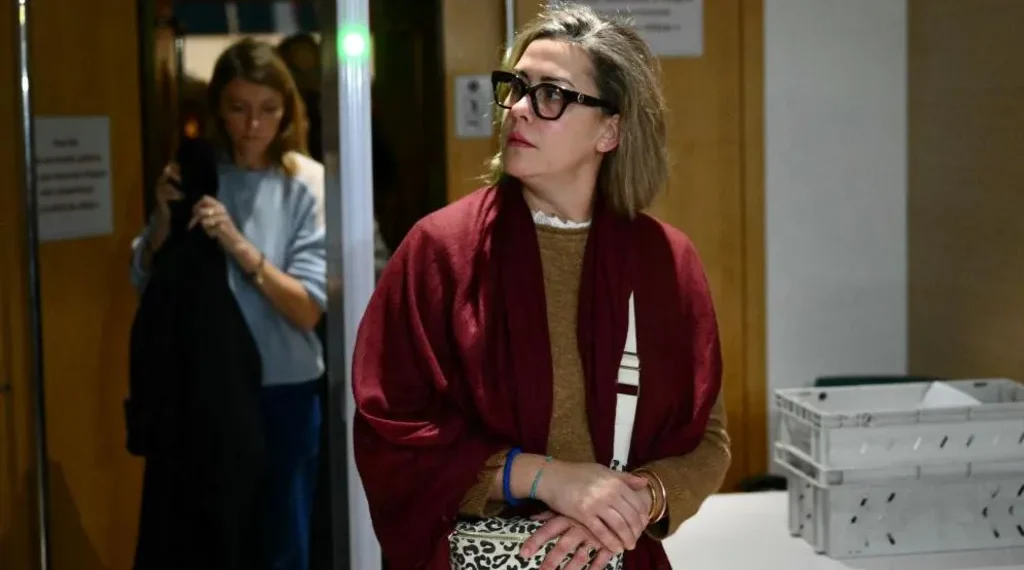Man Who Drugged Wife in French Mass Rape Case Faces Emotional Courtroom Confrontation
Tensions erupted during the French mass rape trial on Wednesday when Dominique Pelicot’s daughter, Caroline, shouted across the courtroom that her father would “die alone like a dog.” The trial, which has drawn widespread attention, involves Pelicot and 50 other defendants accused of heinous crimes, with a verdict expected on December 20.
Caroline’s Anguish and Accusations
Caroline Darian, 45, accused her father of drugging and abusing her after semi-nude photos of her asleep were discovered on his laptop. Pelicot denies these allegations but admitted to drugging his wife, Gisèle, over a decade and recruiting men online to rape her while she was unconscious.
Caroline, visibly emotional, described how her life “stopped” in 2020 when police showed her the photos. Speaking directly to her father during his final testimony, she declared, “I will never come to see you. Never. You will die alone like a dog.”
In response, Pelicot expressed regret for losing his daughter’s support, recounting memories of their close relationship. “I would love to see her, to talk to her,” he said, but his words were met with silence and tears from Caroline.
Testimonies of Betrayal and Pain
During questioning, Pelicot described himself as a sex addict, admitting he felt “unburdened” after his arrest. He denied being motivated by revenge for his wife’s affair in the 1980s, calling the act of drugging someone “crap” and stating it “annihilates everything.”
Pelicot’s wife, Gisèle, courageously waived her anonymity to bring the trial to light. Her lawyers commended her bravery in pursuing justice despite the emotional toll.
Closing Arguments: A Historic Trial
Lawyers for Gisèle emphasized the trial’s significance, calling it a historic moment for addressing sexual violence and systemic abuse. Antoine Camus, one of her attorneys, condemned the “banality of evil,” referencing philosopher Hannah Arendt, and highlighted the collective responsibility of all involved in enabling such atrocities.
“Everyone who entered that house of horrors knew others had come before them and would follow,” Camus stated. He dismissed the defense’s argument that many men were manipulated or unaware of Gisèle’s unconscious state, arguing this excuse undermined accountability.
Gisèle’s Fight for Justice
The case has profoundly affected Gisèle’s life, forcing her to live in obscurity under her maiden name. However, in 2023, she decided to waive her anonymity, driven by a desire to shift the burden of shame and expose the reality of rape.
“She understood that for her story to help others, she needed to step into the light,” said her lawyer, Stéphane Babonneau. He emphasized that this trial was not just about seeking justice for Gisèle but creating a legacy for future generations.
A Legacy of Courage
Babonneau concluded by urging the judges to reject the defense’s argument of ignorance, warning of the dangerous precedent it could set. “If you accept the right to make a mistake, what stops another man from saying he misunderstood ‘no’ as ‘yes’ tomorrow?” he asked.
Turning to Gisèle, Babonneau paid tribute to her courage, saying, “You did your job. You went beyond what was expected of you. Now, pass on the torch to others to continue the fight you never chose.”
As the courtroom fell silent, Gisèle wiped her tears, embodying resilience in the face of unimaginable betrayal. The trial stands as a pivotal moment in addressing sexual violence and systemic abuse, with its outcome likely to resonate far beyond the courtroom.
This article was rewritten by JournosNews.com based on verified reporting from trusted sources. The content has been independently reviewed, fact-checked, and edited for accuracy, neutrality, tone, and global readability in accordance with Google News and AdSense standards.
All opinions, quotes, or statements from contributors, experts, or sourced organizations do not necessarily reflect the views of JournosNews.com. JournosNews.com maintains full editorial independence from any external funders, sponsors, or organizations.
Stay informed with JournosNews.com — your trusted source for verified global reporting and in-depth analysis. Follow us on Google News, BlueSky, and X for real-time updates.














